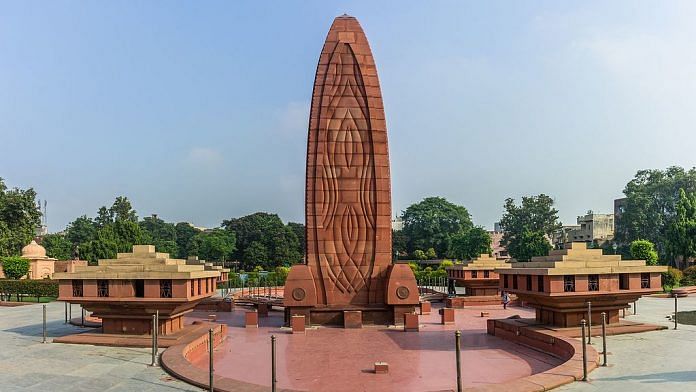Chandigarh: The Punjab Assembly Wednesday unanimously passed a resolution to press upon the Centre to seek a formal apology from the British government for the Jallianwala Bagh massacre in its centenary year.
On April 13 1919, 379 people, including women and children, were killed and thousands wounded when British troops opened fire on unarmed protesters on the orders of General Reginald Dyer on Baisakhi day.
The tragedy is considered one of the most significant events in India’s freedom struggle.
Moving the resolution, Parliamentary Affairs Minister Brahm Mohindra said it was a dastardly act perpetrated upon innocent people who had converged at the Jallianwala Bagh on the fateful day of Baisakhi to protest against the Rowlatt Act.
The British government had realised the gravity of Dyer’s irresponsible act, evident from his premature superannuation from the British Army, said the minister, pointing out that Nobel laureate Rabindranath Tagore had renounced his knighthood in protest.
Urging the Speaker to put the resolution to voice vote by the Assembly, Mohindra said that given these facts, it was high time for India to prevail upon the British government to tender an apology to assuage the bruised psyche of our citizens and Indian diaspora settled across the globe.
The resolution was passed unanimously.
While delivering the concluding speech on the discussion, Punjab chief minister Captain Amarinder Singh said the UK must follow in Canada’s footsteps.
“Justin Trudeau (Canadian Prime Minister) has apologised for Kamagata Maru. The resolution here in our assembly will strengthen a similar move made in the House of Lords on which a discussion is on,” he said.
Also read: UK’s House of Lords is considering an apology for Jallianwala Bagh massacre
UK’s regret
In February 2013, then Prime Minister of UK David Cameron had visited the Jallianwala Bagh memorial at Amritsar and expressed regret at the incident. He had, however, stopped short of tendering an apology.
Cameron wrote in the visitor’s book: “This was a deeply shameful act in British history, one that Winston Churchill rightly described at that time as ‘monstrous.’ We must never forget what happened here and we must ensure that the UK stands up for the right of peaceful protests.”
Pulwama rocks Assembly
Earlier in the day, the Shiromani Akali Dal (SAD)-BJP combine moved a condemnation resolution against Pakistan Prime Minister Imran Khan for his statement on the Pulwama attack. It was not allowed by the Speaker on the grounds that a similar resolution had already been passed by the House soon after the attack. The Akali-BJP MLAs walked out in protest.
Also read: It’s 100 years of Jallianwala Bagh, not that you would know if you were at the memorial







The butcher of Amritsar, Brigadier Genera Reginald Dyer was although relieved of his post and sent back to England he was never punished. Apart from that the British public honoured him by collecting 26,00 pounds (in today,s value over 1 million pounds) as they saw him as the “Saviour of Punjab” and ‘Defender of the Empire’. I think it is time the Indian Governmetn form an International court of justice containing eminent international and Indian judges to try Reginald Dyer. and pass a judgement over his action and suitable punishment that should have been given to him. What better time for this than the centenary year of the atrocity.
The only justice is:
The massacre of Buckingham Palace.
The British Monarchy must be abolished and its loot liquidated and returned to the colonies.
Every Brit scum dug out of the ground and dumped next to Osama bin Laen
Much more than an apology is required. The number of lives lost may have been infinitely larger in the Bengal famine, countless other acts of cruelty and deprivation associated with colonial rule, but a hundred years later, the heart still trembles at the thought of what happened at Jallianwala Bagh. An indelible stain and blot.